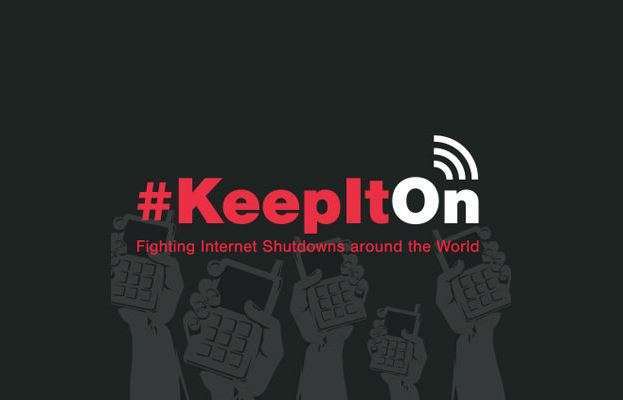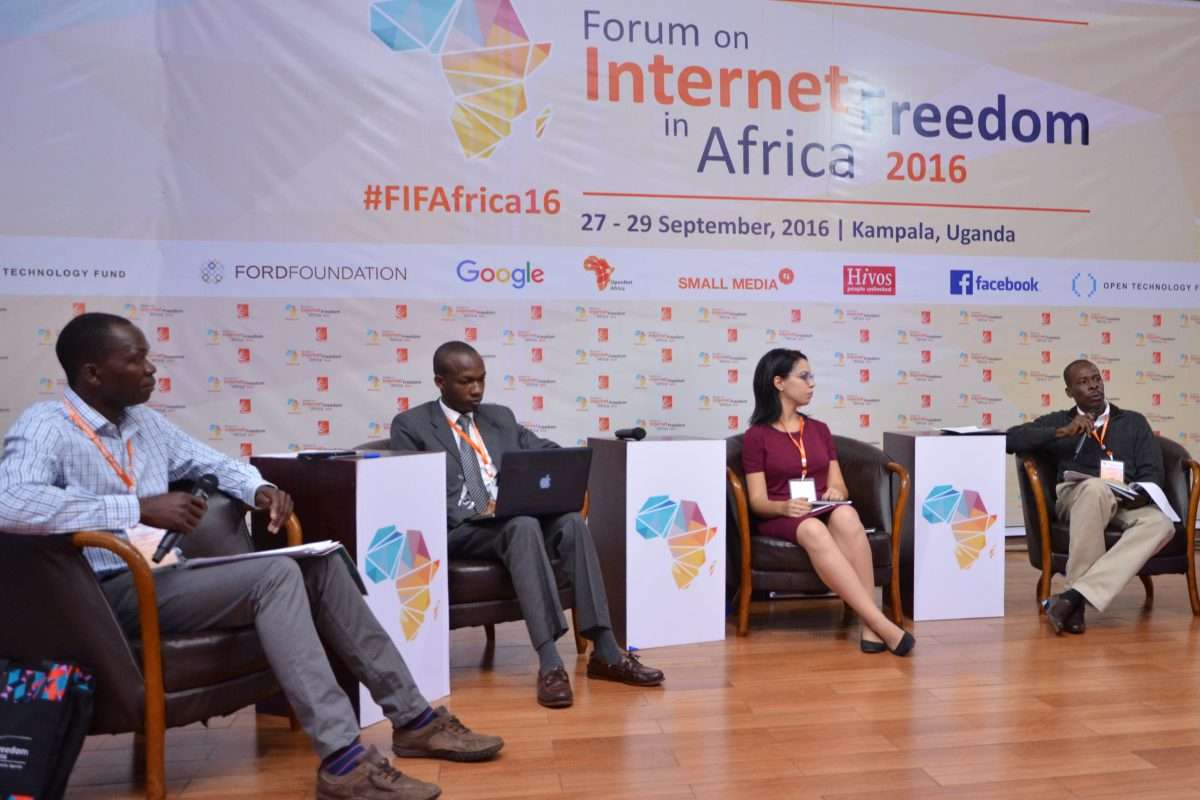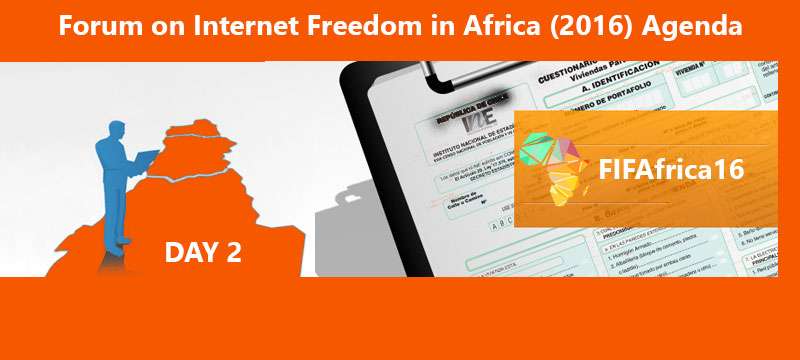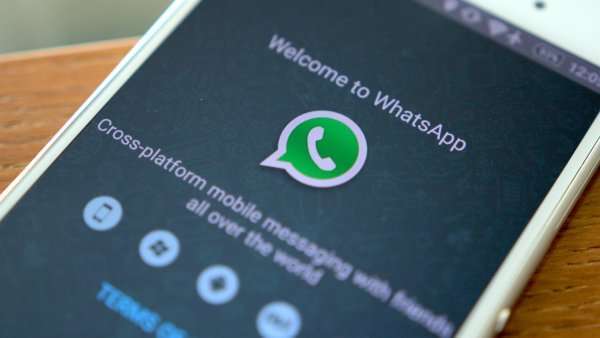Open Letter |
On January 22, 2017, Civil Society Organizations from around the world sent the following open letter to The President of Cameroon, Minister of Posts and Telecommunications, and Minister of Communication, on ongoing Internet blackout in anglophone regions of the country.

Internet Sans Frontières – CC BY-NC-SA 3.0 FR
Re: Internet Connectivity in the Republic of Cameroon
Your Excellencies,
We are writing to urgently request that you restore Internet access in the South West and North West regions of Cameroon. Multiple reports, including ours, indicate that your government ordered operators to block communications over the internet in the anglophone regions of the country. [1]
We implore you to keep the internet on.
Research shows that internet shutdowns and violence go hand in hand. [2] Shutdowns disrupt the free flow of information and create a cover of darkness that allows repression to occur without scrutiny. Worryingly, the Republic of Cameroon would be joining an alarming global trend of government-mandated shutdowns around election issues, a practice that many African Union member governments have recently adopted, including: Burundi, Congo-Brazzaville, Chad, Gabon, Egypt, Sudan, the Central African Republic, Niger, Democratic Republic of Congo. [3], [4], [5], [6], [7], [8], [9]
Internet shutdowns — with governments ordering the suspension or throttling of entire networks, often during elections or public protests — must never be allowed to become the new normal.
Justified for public safety purposes, shutdowns instead cut off access to vital information, e-financing, and emergency services, plunging whole societies into fear and destabilizing the internet’s power to support small business livelihoods and drive economic development. In addition, a study by the Brookings Institution indicates that shutdowns drained $2.4 billion from the global economy last year. [10]
The Internet shutdown imposed in anglophone territories of Cameroon will hit hard on the burgeoning digital economy, which is blossoming in Cameroon’s Silicon Mountain, Buea. [11]
International Law
A growing body of jurisprudence declares shutdowns to violate international law. The United Nations Human Rights Council has spoken out strongly against internet shutdowns. In its 32nd Session, in July 2016, the Council passed by consensus a resolution on freedom of expression and the internet with operative language on internet shutdowns. The resolution, A/HRC/RES/32/13, « condemns unequivocally measures to intentionally prevent or disrupt access to or dissemination of information online in violation of international human rights law and calls on all States to refrain from and cease such measures. » The Council intended this clear declaration to combat the blocking and throttling of networks, applications, and services that facilitate the freedoms of expression, opinion, and access to information online. In addition, the African Commission on Human and Peoples’ Rights stated in its November 2016 Resolution on the Right to Freedom of Information and Expression on the Internet in Africa that it was “Concerned by the emerging practice of State Parties of interrupting or limiting access to telecommunication services such as the Internet, social media and messaging services, increasingly during elections.” [12]
In 2015, various experts from the United Nations (UN) Organization for Security and Co-operation in Europe (OSCE), Organization of American States (OAS), and the African Commission on Human and Peoples’ Rights (ACHPR), issued an historic statement declaring that internet “kill switches” can never be justified under international human rights law, even in times of conflict. [13] General Comment 34 of the UN Human Rights Committee, the official interpreter of the International Covenant on Civil and Political Rights, emphasizes that restrictions on speech online must be strictly necessary and proportionate to achieve a legitimate purpose. Shutdowns disproportionately impact all users, and unnecessarily restrict access to information and emergency services communications during crucial moments.
The internet has enabled significant advances in health, education, and creativity, and it is now essential to fully realize human rights including participation in elections and access to information.
We humbly request that you use the vital positions of your good offices to:
- Ensure that the internet connectivity, including social media, is restored in the anglophone regions of the republic of Cameroon in the coming period
- Publicly declare your commitment to keep the internet on, including social media
- Encourage telecommunications and internet services providers to respect human rights, including through public disclosures and transparency reports.
We are happy to assist you in any of these matters.
Sincerely,
- Access Now
- Internet Sans Frontières
- Internet Sans Frontières-Togo
- Africtivistes
- Cameroon Ô Bosso
- Droit au Droit
- Réseau des blogueurs du Burkina Faso
- Réseau Panafricain des Défenseurs des Droits Humains
- Afrika Youth Movement
Voice of Women Initiative
Coexistence with Alternative Language and Action Movement- Tunisia - The Collaboration on International ICT Policy in East and Southern Africa (CIPESA)
- Pen Plus Bytes
- Unwanted Witness Uganda
- Center for Media Research
- Media Foundation for West Africa
- Campaign for Human Rights and Development
- African Freedom of Expression Exchange (AFEX)
- Center for Democracy and Technology
- Paradigm Initiative Nigeria
- Internet Freedom Forum
- ADISI-Cameroun
- Société des Amis de Mongo Beti (SAMBE)
Notes:
[1] Julie Owono, Regional Internet Blackout In Cameroon (Report by Internet Sans Frontières, 20 January 2017) <http://internetwithoutborders.org/fr/regional-internet-blackout-in-cameroon/
[2] Sarah Myers West, ‘Research Shows Internet Shutdowns and State Violence Go Hand in Hand in Syria’ (Electronic Frontier Foundation, 1 July 2015) <https://www.eff.org/deeplinks/2015/06/research-shows-internet-shutdowns-and-state-violence-go-hand-hand-syria> accessed 18 February 2016.
[3] ‘Access urges UN and African Union experts to take action on Burundi internet shutdown’ (Access Now 29 April 2015) <https://www.accessnow.org/access-urges-un-and-african-union-experts-to-take-action-on-burundi-interne/> accessed 18 February 2016.
[4] Deji Olukotun, ‘Government may have ordered internet shutdown in Congo-Brazzaville’ (Access Now 20 October 2015) <https://www.accessnow.org/government-may-have-ordered-internet-shutdown-in-congo-brazzaville/> accessed 18 February 2016.
[5] Deji Olukotun and Peter Micek, ‘Five years later: the internet shutdown that rocked Egypt’ (Access Now 21 January 2016) <https://www.accessnow.org/five-years-later-the-internet-shutdown-that-rocked-egypt/> accessed 18 February 2016.
[6] Peter Micek, ‘Update: Mass internet shutdown in Sudan follows days of protest’ (Access Now, 15 October 2013) <https://www.accessnow.org/mass-internet-shutdown-in-sudan-follows-days-of-protest/> accessed 18 February 2016.
[7] Peter Micek, ‘Access submits evidence to International Criminal Court on net shutdown in Central African Republic’(Access Now 17 February 2015) <https://www.accessnow.org/evidence-international-criminal-court-net-shutdown-in-central-african-repub/> accessed 18 February 2016.
[8] ‘Niger resorts to blocking in wake of violent protests against Charlie Hebdo cartoons.’ (Access Now Facebook page 26 January 2015) <https://www.facebook.com/accessnow/posts/10153030213288480> accessed 18 February 2016.
[9] Peter Micek, (Access Now 23 January 2015) ‘Violating International Law, DRC Orders Telcos to Cease Communications Services’ <https://www.accessnow.org/violating-international-law-drc-orders-telcos-vodafone-millicon-airtel/> accessed 18 February 2016.
[10] Darrell West, (Brookings Institution, October 2016) “Internet shutdowns cost countries $2.4 billion last year”https://www.brookings.edu/wp-content/uploads/2016/10/intenet-shutdowns-v-3.pdf
[11] Julie Owono, Cameroon’s Reflection on the “false news” debate stirs censorship fears (Report by Internet Sans Frontières, 22 November 2016) <http://internetwithoutborders.org/fr/cameroonian-governments-dangerous-stance-against-a-free-and-open-internet/
[12] African Commission on Human and Peoples’ Rights, (November 2016) ‘362: Resolution on the Right to Freedom of Information and Expression on the Internet in Africa – ACHPR/Res. 362(LIX) 2016’ http://www.achpr.org/sessions/59th/resolutions/362/
[13] Peter Micek, (Access Now 4 May 2015) ‘Internet kill switches are a violation of human rights law, declare major UN and rights experts’ <https://www.accessnow.org/blog/2015/05/04/internet-kill-switches-are-a-violation-of-human-rights-law-declare-major-un> accessed 18 February 2016.
Originally published here – French Version available here






